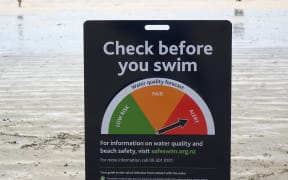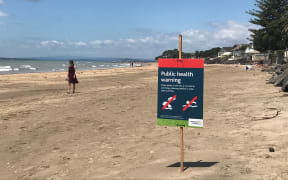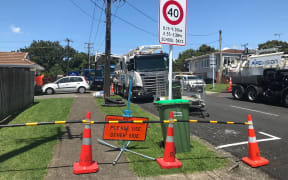Those monitoring Auckland's beaches have expressed surprise at just how dirty one of the city's flagship swimming spots is.
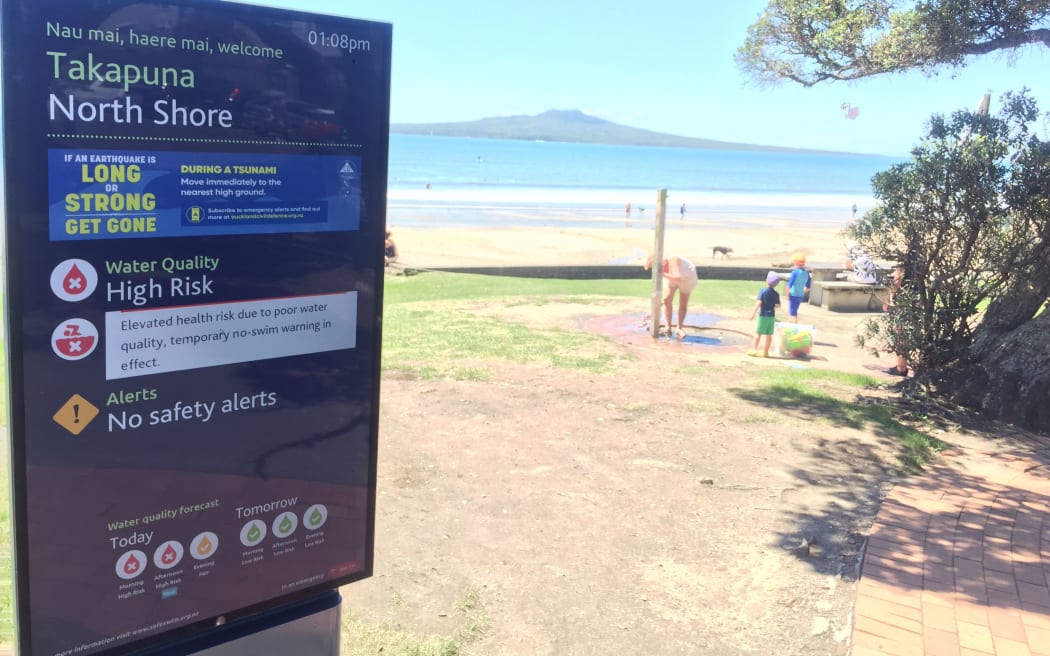
A warning sign at Takapuna beach. Photo: RNZ / Rowan Quinn
For almost a third of the summer, Takapuna beach's water was so dirty people were warned not to swim there.
Nobody was swimming on a rainy day like today, but some braved the thunder and rain to walk their dog or take a stroll along the beach.
While small waves lapped quietly, 20 metres away at the beachfront water billowed out of large pipes onto the sand.
Red signs on top of the pipes reads: "Public health warning.... Water from this outlet may be contaminated. Do not swim or play in this water."
On finer days the beach is a popular spot to enjoy the sun and have a dip.
But new figures from the Council's Safeswim montoring show for 30 percent of summer the beach was not suitable for swimming.
Nick Vigar, the manager of the programme, said the performance of the beach was surprising and prompted an investigation into the source.
"Approximately half of the pipes that discharge to Takapuna beach tend to have some sort of significant issue in terms of wastewater inputs. It's fecal bacteria from a number of sources, so it's not just from the wastewater sewer but it includes birds, dogs, other sources, but there are certainly indications of human wastewater in there.
He said officals were continuing to investigate the source and local networks through winter.
Takapuna beach was not alone in its performance - Herne Bay, Home Bay and St Mary's Bay all matched or exceeded the popular beach in terms of non-compliance, although all currently have combined sewer discharges nearby.
"I don't think that's acceptable in 2018," said Mr Vigar. "Beaches like Takapuna came as a surprise. They're not affected by combined sewer overflows, so I think it's important given the iconic nature of beaches like Takapuna that we focus all our efforts on getting them up to a more acceptable level."
He said sewer network improvements would improve some areas markedly and it was important to note that 60 percent of beaches were safe to use 90 percent of the time.
Water Quality putting off swimmers
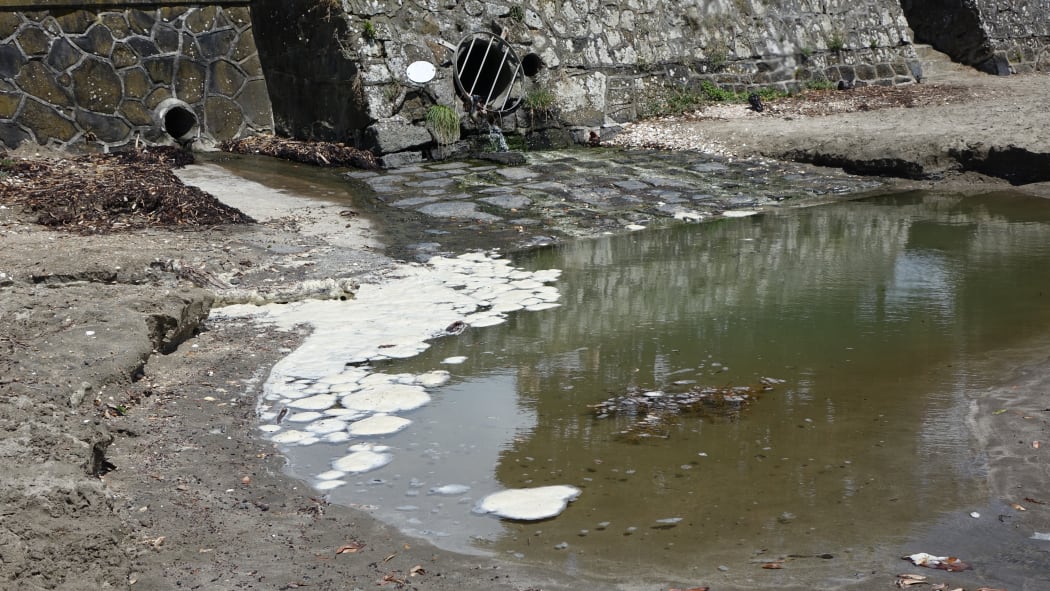
Pipes draining into the water at Takapuna beach. Photo: RNZ / Jessie Chiang
For the past 15 years the Banana Boat Ocean Swim Series has had events at Takapuna Beach.
Event director Scott Rice said last summer they decided to move it to Devonport to allay concerns.
"We have to look at all the different scenarios. In a scenario of having 1000 swimmers standing on the beach and the beach being deemed to be unacceptable on that website Safeswim, an hour or two that swim takes place then that could not only upset and disappoint thousands of people, it would completely inconvenvience them as well and put us in a precarious position. "
He said events like his were going to have to change.
"It is about us adapting because the problem is not something I'm going to solve and it's going to take a long time and a lot of money to sort out the reason behind the issue. "
However, he said most beaches were fine to swim and problems mainly came after rain.
He also said research was showing the water quality improved as it got deeper.
Surf Life Saving has also moved events and programmes from Takapuna beach. Its northern region chief executive Matt Williams said they had to review their approach when beaches reached warning levels.
"We agreed that because when it is red there is a significant chance of illness, health and safety risk occuring that it would be best we didn't put lifeguards in the water then because we knew it wouldn't be in their best interests."
He said this also included patroling unsafe beaches.
"We put the flags out where we see it's a safe place to swim. If there was nine-foot waves rolling through at Takapuna beach, equally we wouldn't put a patrol on because it's not safe to the public on a physical sense.
"So we've expanded that realm to the water quality. There's just as much risk of them having some form of harm, though different sort of harm."
